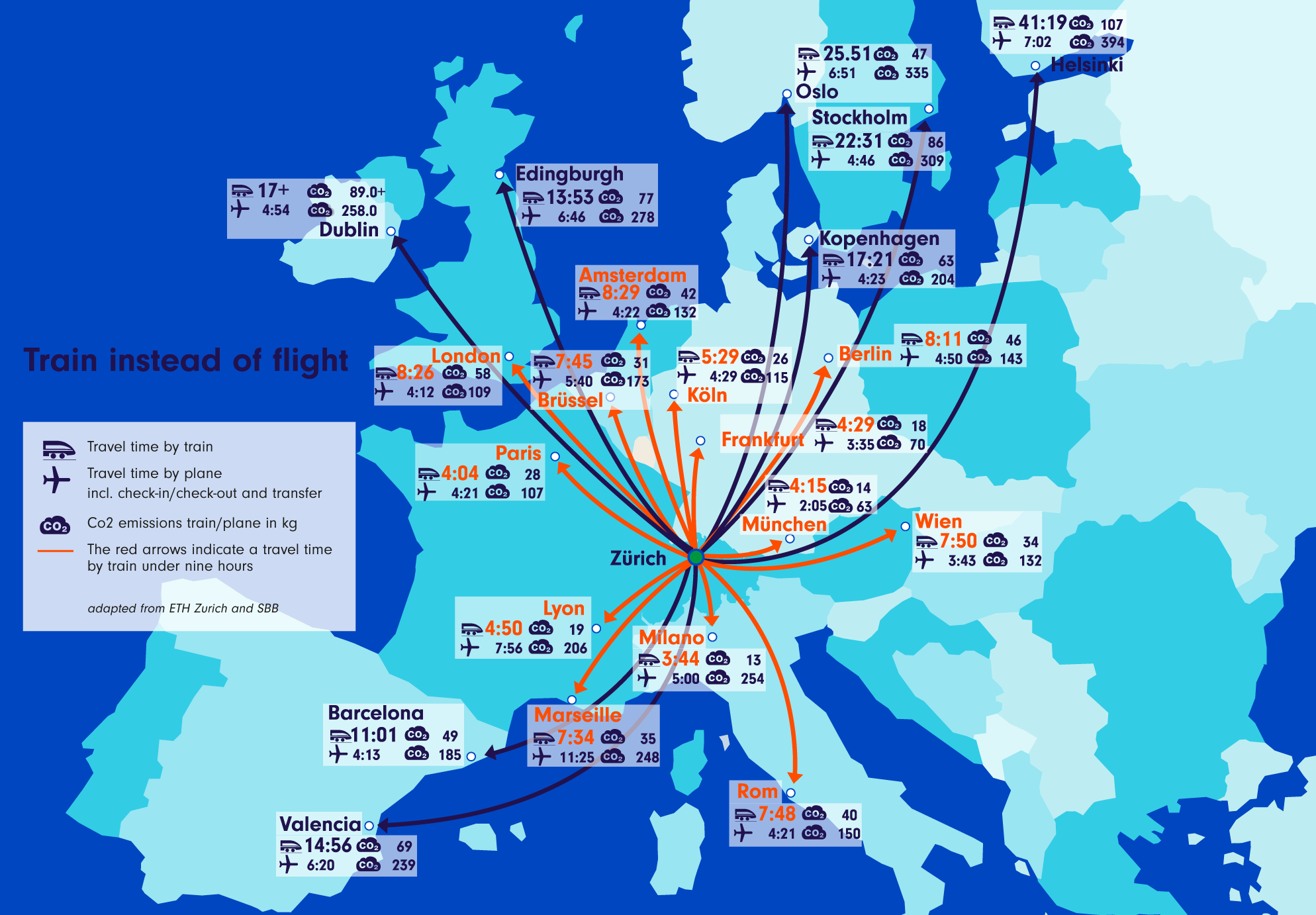The project
With the internationalization of science and research, air travel within academia has increased - scientists are among the frequent flyers. The goal of the FlyingLess project is to support universities and research organizations in reducing flight emissions which accounts for a significant share of their total greenhouse gas emissions. In doing so, FlyingLess develops approaches to reduce air travel in academia that are implemented at different levels (research, teaching and administration). To achieve the broadest possible impact, results and specific tools are made available through various communication channels.
Further information can be found on the FlyingLess website in the section "About the project".
The FlyingLess project is funded over 3 years as an innovative climate protection project within the framework of the National Climate Initiative (NKI) of the German Federal Ministry of Economic Affairs and Climate Action.
Further information can be found on the NKI website.
The project is led by the ifeu (Institute for Energy and Environmental Research) Heidelberg in close collaboration with Dr. Nicole Aeschbach, TdLab Geography at the Institute of Geography at Heidelberg University. ifeu researches and advises on important environmental and sustainability topics worldwide for numerous international and national funding agencies and clients. With over 40 years of experience, it is one of the most important ecologically oriented, independent and non-profit research institutes in Germany. At the TdLab Geography at Heidelberg University, actors from academia and practice work together on solutions for climate protection, adaptation to climate change impacts and other sustainability issues.
Further information can be found on the websites of ifeu and TdLab Geography.
The project is carried out in close collaboration with four partners: EMBL (European Molecular Biology Laboratory) and Max Planck Institute for Astronomy (MPI Astronomy) in Heidelberg as non-university research institutions and the Universities of Konstanz and Potsdam as universities.
Further information can be found on the FlyingLess website in the section "Partners".
Air travel reduction
This document provides an overview of the options for making travel policies at universities sustainable:
In the understanding of the FlyingLess project, offsetting emissions from air travel is only a complementary measure. The project is about real reduction of emissions from air travel.
The FlyingLess blog has also compiled information on offsetting (English only):
The stay grounded initiative has also addressed the issue of offsetting (or offsetting) and compiled various issues related to offsetting: https://de.stay-grounded.org/informiere-dich/#offsetting.
The website of Atmosfair, one of the providers of offsetting, also provides information on "When offsetting makes sense".
The alternative of taking a train instead of a flight is often only suitable for intra-continental destinations. The interactive map Chronotrains shows how far you can travel from any station in Europe in less than 5 hours.
To book a specific train trip, various booking portals can be used, such as
The map (below) compares the travel times and CO2 emissions of air and train travel in Europe starting from Zurich:

The following document provides an overview of the federal and state framework conditions for official air travel in the academic sector in Germany:
FlyingLess Framework
The following document provides an overview of the measures possible at universities to reduce emissions from air travel:
The topic of air travel reduction is steadily gaining more attention at universities and research institutions worldwide. The world map "Academic Air Travel Reduction and Off-setting Projects" (Agnes Kreil) shows which academic institutions are working on the topic. Projects on flight reduction are mainly concentrated in Europe and North America.